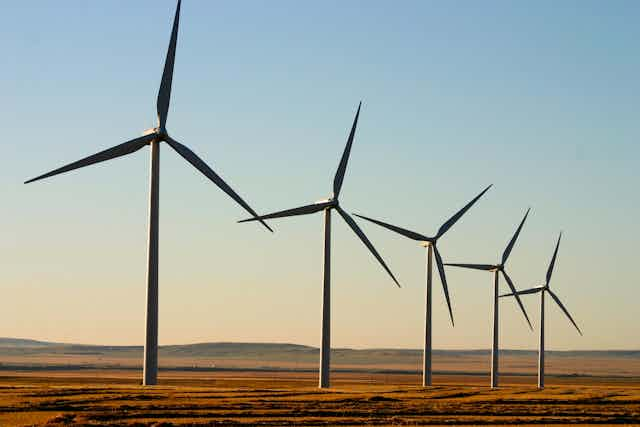We’ve heard it ad nauseum from our political leaders and the media: We can’t do anything about climate change because it would cost us jobs and jeopardize our future.
“We can’t afford a carbon tax.”
“The sun doesn’t shine at night.”
“Without oil, how would we pay for education or hospitals?”
“But we are a drop in the bucket compared to China.”
This is the dominant narrative in Saskatchewan, Canada’s second largest oil-producing province, with the highest greenhouse gas (GHG) emissions per capita. It all points to one conclusion: Dig in and do nothing.
Are carbon taxes too little, too late?
In early October, the Intergovernmental Panel on Climate Change released an urgent warning to the global community. If, as a global community, we allow warming to exceed 1.5°C we face widespread species extinction, a climate change refugee crisis and serious threats to our livelihoods, well-being and security.
In order to have a chance at keeping global warming below 1.5°C we need to reduce our emissions by 45 per cent from 2010 levels by 2030. It is crystal clear that we need drastic and immediate action in order to rescue a habitable planet.
The federal government announced in October that it will collect a carbon tax on behalf of provinces like Saskatchewan that have refused to implement one on their own.
A household in Saskatchewan should receive a rebate amounting to about $600 per year to offset the federally imposed tax on fuels. That’s double what households in Ontario will receive.
But the truth is we need much more than a carbon tax. We need a wholescale energy transition in every jurisdiction across the globe.
‘Regime of obstruction’
The idea of a renewable energy transition is exciting. It opens up space to think about not just decarbonization (replacing fossil fuels with renewables), but also enhancing democracy and decolonization.
Alongside colleagues across Western Canada, I have been studying what we are calling a “regime of obstruction.” Organized by companies that profit from the extraction and burning of fossil fuels, this regime is doing all it can to slow down or block the transition from fossil fuels so that the regime can remain profitable.

These companies use their enormous power to influence all aspects of political and civil society. They sponsor research, lobby governments and fund political parties, and circulate narratives that suggest there are no alternatives to fossil fuels.
This regime of obstruction pushes the perverse notion that there is no future without extracting fossil fuels and releasing their emissions into the atmosphere.
If we are going to decarbonize our economies, we will have to challenge the corporate power of the fossil fuel industry. This will not be easy, but removing the stranglehold that the industry has on our society will allow us to introduce more justice and fairness to our economies.
We could harness our Crown corporations to create new, unionized, green jobs in renewable energy with a priority on delivering the public universal access to energy at prices that we can all afford.
We could empower local communities to produce their own energy and build new green economies on the lands they have stewarded for generations.
We could put people to work cleaning up the liabilities of the oil and gas industry that has left over one hundred thousand wells and hundreds of thousands of kilometres of pipelines across the province.
Opportunities in transition
According to the Green Economy Network — an organization made up of unions, environmental and social justice organizations — an investment of $3.62 billion could create more than 48,000 jobs in energy efficiency, conservation, renewable energy and public transit in Saskatchewan over five years.
The fear driving resistance to a new green economy is legitimate. Workers in Saskatchewan’s coal and oil and gas producing communities are right to worry about their futures when our leaders have provided no credible, local-level, detailed plans about how a transition might work. It’s time to start crunching the numbers and support local communities as they plan for vibrant futures.
Read more: Facing uncertain future, fossil fuel workers want retraining in renewables
Most importantly, a wholescale transition opens up opportunities for decolonization. The late Secwepemc leader Arthur Manuel pointed out that Indigenous communities have been reduced to 0.2 per cent of the Canadian landmass.
In order to grow Indigenous economies, Canada must repatriate lands and resources to these communities. Crown lands that have been reclaimed from oil and gas extraction would be a great place to start, and would provide a foundation for a more just future.

